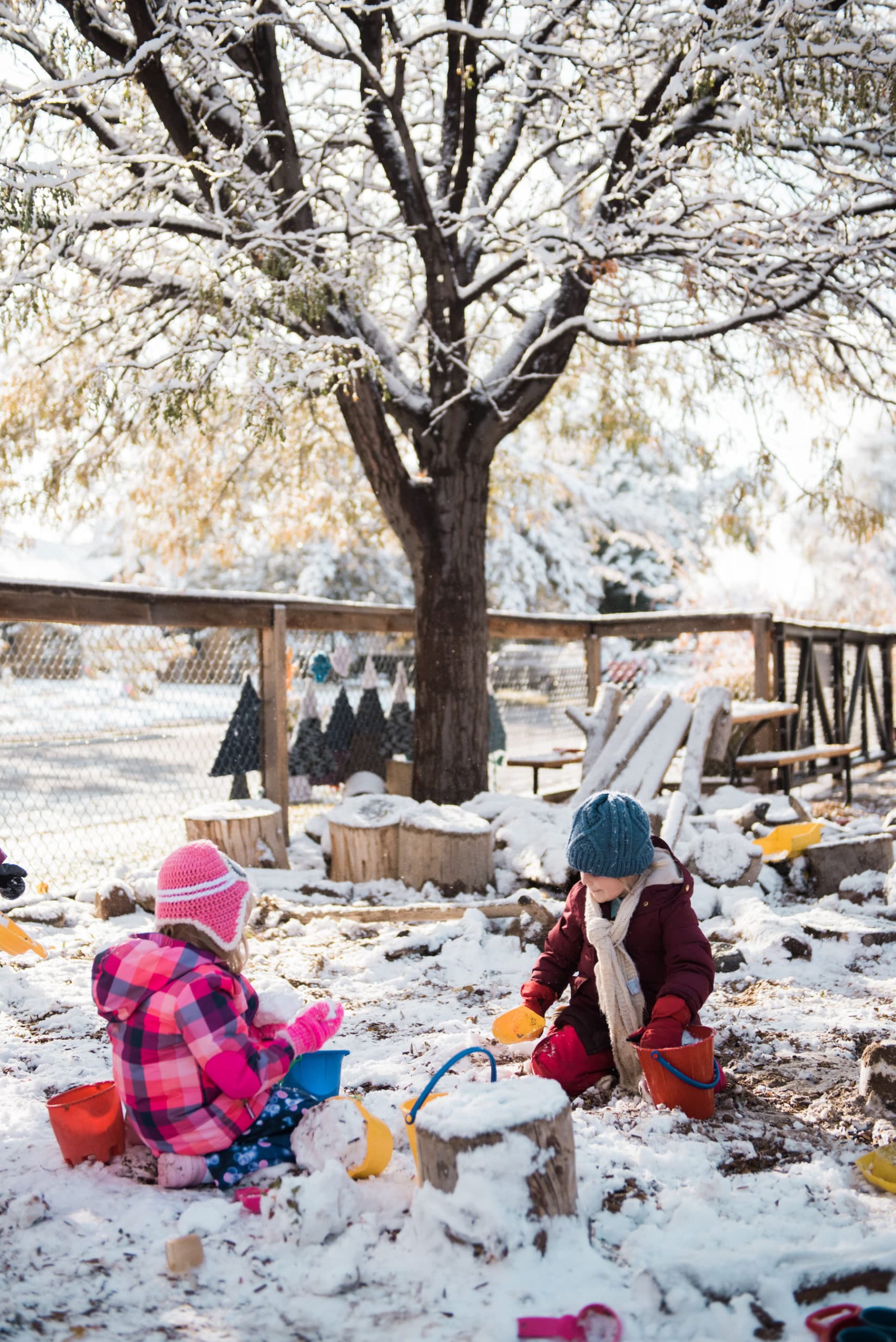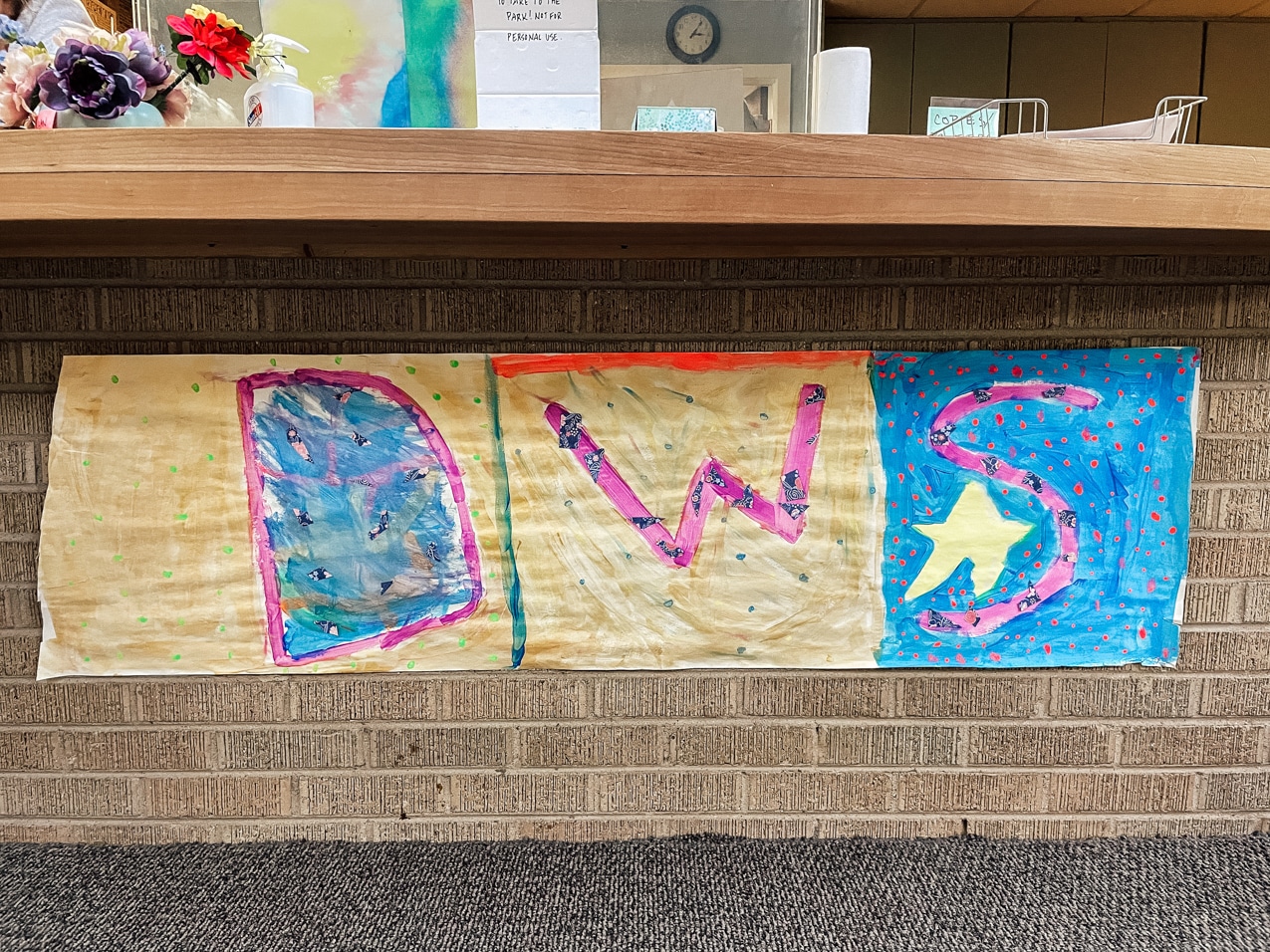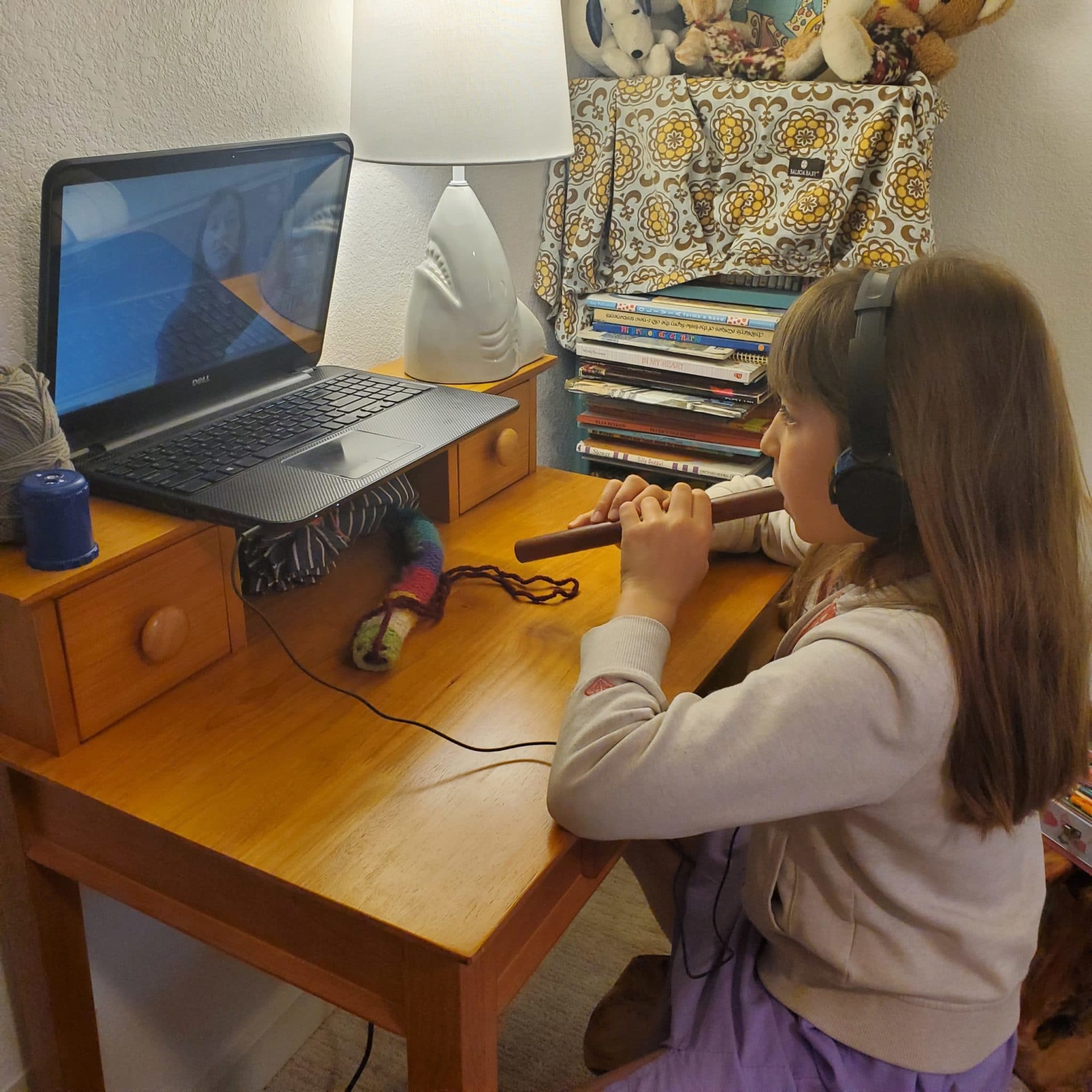Range

Artwork by Class of 2020 graduate Bryn Creager
How do we ensure that our children, our students, are prepared to succeed in a rapidly evolving world? That question inspires Waldorf educators across the world.
In response to this question, parents are often fed a persistent message: If you want your child to succeed in an endeavor later in life, then you must specialize early in life. Be it sports, music, art or literature, the ticket to adulthood success is childhood grit and singular focus—or so we are told.
In the book Range: Why Generalists Triumph in a Specialized World, David Epstein explores whether intense early specialization benefits children and adults alike. He finds that early specialization is the outlier, not the norm, when it comes to producing elite talents into adulthood.
After a deep-dive into a growing body of research, Range reveals that the most successful musicians, athletes, scholars and entrepreneurs have embraced and benefited from a range of interests and activities during their youth. When it comes to athletics, for example, Epstein finds:
“Eventual elites typically devote less time early on to deliberate practice in the activity in which they will eventually become experts. Instead, they undergo what researchers call a ‘sampling period.’ They play a variety of sports, usually in an unstructured or lightly structured environment; they gain a range of physical proficiencies from which they can draw; they learn about their abilities and proclivities; and only later do they focus in and ramp up technical practice in one area.”
These findings are also reflected in Kim John Payne’s book Beyond Winning: Parenting in a Toxic Sports Environment. As in Range, he finds that the most successful adult athletes benefited immeasurably from childhood free-play and thus avoided the onset of teenage sports burnout brought on by too much intense work too soon.
And it’s not just sports. Range chronicles business leaders who succeeded because of their diverse experiences and interests, not in spite of them; musicians like Yo-Yo Ma who played several instruments before settling upon his famed cello; and artists like Van Gogh who found a true calling later in life. What we need in this ever-changing world, Range asserts, is “people who start broad and embrace diverse experiences and perspectives while they progress.”
Waldorf education has always understood this critical truth. Offering a liberal arts K-12 curriculum, Waldorf education challenges its students to embrace, learn and grow from multiple disciplines—from literature to math and science to arts to theater to athletics to music and beyond. Art is integrated into our main lessons, each student is encouraged to participate in our sports teams—there are no cuts or tryouts, each grade works together to produce a play, we join our musical natures in orchestra. Our students are pushed to explore this “sampling period” in the development of their whole selves.
As students progress at The Denver Waldorf School, they may gravitate toward a more singular focus. For example, for their senior projects, students may intensely focus on a single endeavor—such as pursuing a pilot’s license, researching homelessness in Denver and producing a podcast, or training to become an Emergency Medical Technician. Whatever they choose to focus on, they never shy away from embracing a broad range of talents, skills and interests.
Through this liberal arts education, our students are not just prepared for college; they are prepared to make meaningful and deep contributions to the world — well beyond their first job.
A Waldorf education is the first step in this journey. In a world that will change many times over after they graduate, our students build a solid foundation to meet the challenges and opportunities for all of their days ahead.
In a word, they have range.
DWS Commitment to Anti-Racism
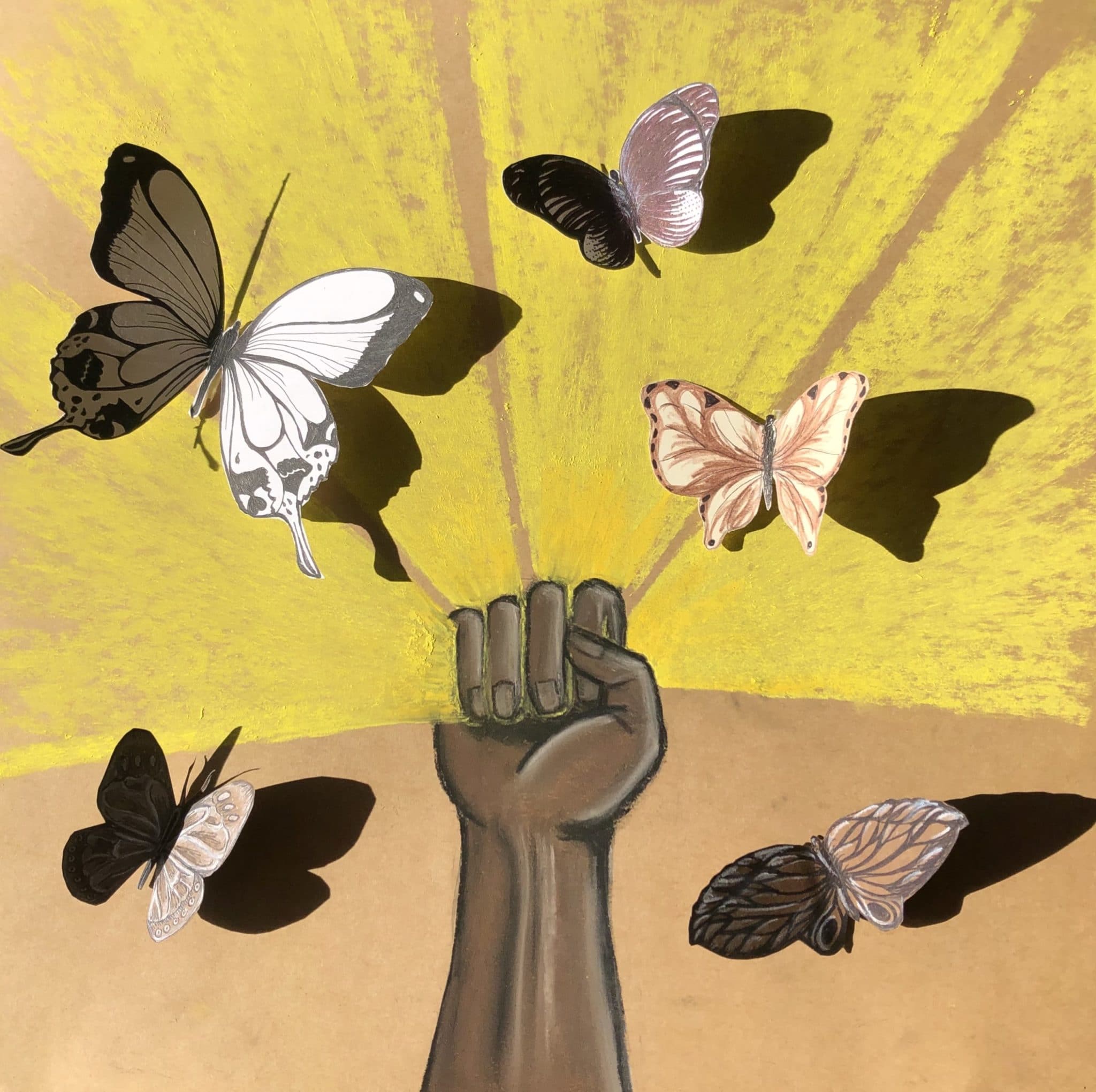
Artwork created with love by our high school art teacher, Kimberly Martin, along with her two daughters (and DWS alumnae) Bella and Tallulah
We at The Denver Waldorf School continue to be deeply saddened and outraged at the tragic and violent death of George Floyd. As a school founded on principles of love and humanity, these actions of brutality strike against our very mission. We recognize that if we do not stand up against systemic racism that faces the Black community, then we too are complicit in oppression.
It is our responsibility to bear witness to what is happening in the world, to elevate the voices of marginalized people, to change the course of inequities, and to break down structural prejudice in all forms where it exists, particularly in our own school
community.
We have much more work to do and here are some examples of steps we are taking and have taken toward greater diversity and inclusion at DWS.
We have worked to grow The Denver Waldorf School’s diverse student body during the past five years from 16% identifying as people of color to 25%. Our next goal is to grow classrooms whose diversity invites many perspectives from several backgrounds, minimizing the risk of tokenization. We do this by continuing to grow our Diversity Scholarship, broadening our outreach efforts, and working to ensure that DWS is a welcoming, safe space.
The Denver Waldorf School’s inherently multicultural curriculum has broadened and deepened to be ever more inclusive of diverse stories and perspectives. We have brought diverse community members in and together through our festivals and celebrations we are working to make our festival life even more inclusive, honoring all people. These same efforts are being taken up on a national level for the greater Waldorf education movement, in particular teacher training institutes. We strive to grow increasingly welcoming and affirming and we, as individuals involved with the school, are working to deepen our personal understanding and be better witnesses of the experiences of people from different backgrounds than our own.
As staff and teachers, we participate in trainings on cultural competence, examining privilege and dismantling oppression. We also strive to help our students recognize and counter white supremacy and oppression, developing positive identities through conversations with their teachers as well as with guests, most recently the Flobots.
Our Diversity and Inclusivity Committee helps shepherd this work throughout the school. Together we reflect, envision, and act to shape The Denver Waldorf School as a place where families, faculty, and staff of all backgrounds feel welcomed and valued. Part of our work as a committee is studying together. This year we read Why Are All the Black Kids Sitting Together in the Cafeteria by Beverly Daniel Tatum. This book helped us better understand racial identity development as it unfolds in Black children, children of color, and White children and our role as parents and educators.
This summer, Diversity and Inclusivity member Vernon Dewey invites all DWS community members who are interested to join him in reading and discussing White Fragility by Robin DiAngelo, a book previously read by the committee. This book is particularly helpful for White people in understanding White privilege in order to better engage in social change. You may email him at vernondewey@denverwaldorf.org. Magally Luna will also be leading a Healing Justice Circle for any DWS People of Color wanting support during this time. You may email her at magallyluna@denverwaldorf.org.
We also recommend the following:
How to talk to children about racism and violence: resources for teachers, parents and guardians
Anti-racism Resources for White People: a compilation of resources for white people and parents to deepen our work in anti-racism
Array Now: Started by Ava DuVernay, director of Now They See Us, this is a compilation of African American independent films – an array of stories and voices.
Teaching Tolerance: Teaching about race, racism, and police violence
75 Things White People Can Do for Racial Justice: Curated by Medium and updated regularly.
Thank you to our community for joining us in elevating our commitment to social justice and renewal.
In Solidarity,
The Denver Waldorf School
Town Hall: June 1, 2020 - WATCH VIDEO
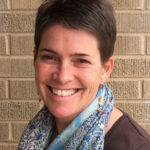 Date: June 1, 2020
Date: June 1, 2020
Time: 6-7pm
Location: Zoom or live stream
Denver Waldorf School hosted its 2nd virtual Town Hall with School Director Kelly Church and Dream Team Faculty Panel about our plans for next year and to celebrate this school year.
Video Recording
For those who couldn’t attend live, enjoy our zoom recording below.
Denver Waldorf Teacher Spotlight - David Johnson
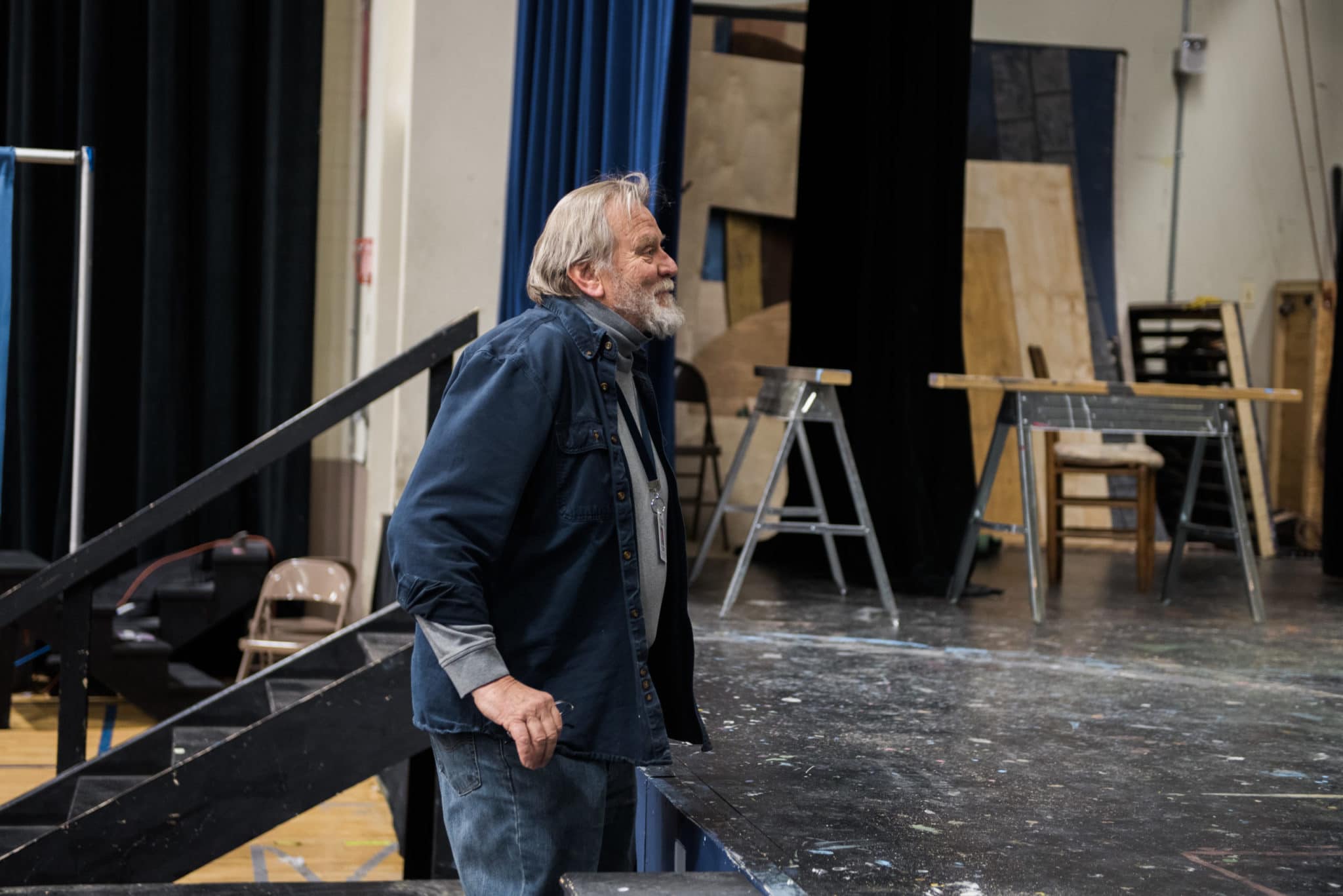
When students at The Denver Waldorf School are asked what they love about their education, they often comment that they treasure close relationships with teachers. DWS students are full of gratitude to be surrounded by caring, dedicated and inspiring teachers.
Our Teacher Spotlight series highlights a teacher each month, and this month, let’s get to know David Johnson. David has been a shining light in our community for almost 20 years and has decided to retire at the end of this school year. What an understatement it is to say that we wish him well and that he will be dearly missed.
What grades and subjects do you teach?
I teach high school drama, both technical work (sets and lighting) and direction. I assist and teach the lower grades for the technical aspects of their plays.
What is your educational background?
I have a BA in Theatre and Radio/Television from Ashland College (now Ashland University) in Ashland, Ohio.
What were the next stops on your journey prior to coming to The Denver Waldorf School?
I spent 15 years working in summer stock theatre, regional theatre, Broadway and Off-Broadway scene shops and theatres. I did regional tours throughout Michigan and New York state. I toured around the world with New York-based dance companies. I spent 14 years working for an educational foundation in upstate New York. I spent 10 years working on Rudolf Steiner’s Mystery Dramas in Spring Valley, New York. I also started a small theatre group with parents and alumni at the Green Meadow Waldorf School.
How many years have you taught at The Denver Waldorf School?
I started teaching at the beginning of the 2002-03 school year.
What drew you to the Waldorf curriculum?
I am a lifer. I attended the Rudolf Steiner School in New York for 7th- 9th grades, High Mowing School in Wilton, New Hampshire for 10th grade, and Die Freie Waldorf Schule in Stuttgart, Germany for 11th and 12th Grades. My three children attended the Green Meadow Waldorf School.
What is your teaching philosophy and approach?
My philosophy of teaching drama in high school is to give the students an exposure to another form of art. All art forms that are in a Waldorf school curriculum engage the imagination and allow a student to express her or himself. In the fine arts, such as clay, painting, woodwork, copper work, etc. the hand is engaged, working in coordination with the eye. This hand/eye coordination coupled with the imagination is vital. In drama, the whole body is in use. The limbs are moving, the ear is listening, the lungs and jaw are speaking. The soul is interacting with the characters and with the story that is being told. In drama, not only does the student have to be one with the character, but with all the other characters on stage at the same time, and also the ones waiting in the wings. This helps the student grow into themselves as they witness what a playwright wishes to express and to grow in relation with the rest of the world.
The Waldorf philosophy of education focuses on the whole child. What does this mean to you?
Just what the statement says: the WHOLE child. Of course, we have to define the whole child. The child is an incarnated being that brings to the world strengths and weaknesses that need to be encouraged and supported as they grow to be whole adults. The Waldorf curriculum is built around the progressive inner development that a child experiences, starting in early childhood and running through 12th grade in high school. The education should be diverse and complete enough that the student will leave school with the fundamental inner and outer tools, ready to enter the greater world to explore and do what ever she or he wants to pursue, in freedom. The education is not just college prep, nor is it just a basic ABCs education. It should educate the thinking, feeling, and willing, i. e. the WHOLE child, in equal parts, delivered at the appropriate times.
What makes The Denver Waldorf School unique?
Traditionally, the main lesson is taught with one and a half to two hours devoted to a subject for three to four weeks. After the time is up, teachers and students move on to a new subject. The moving away from a subject, even for a full year, allows the subject to rest and “live” within the child’s thinking. This is where ideas can live deep in the child, forming concepts that can then be perceived later. It is not unlike breathing. This is how most American Waldorf schools do this. DWS does this also with afternoon track classes, what other Waldorf schools call skills classes. The students are allowed to breath in the art classes and then they are “let go” and given the opportunity to grow within the students.
DWS is collecting comments about the the impact of David’s teaching career – if you have a thought or a story to share, please email communicate@denverwaldorf.org.
Many heartfelt thanks to David for his dedication to the growth of our students.
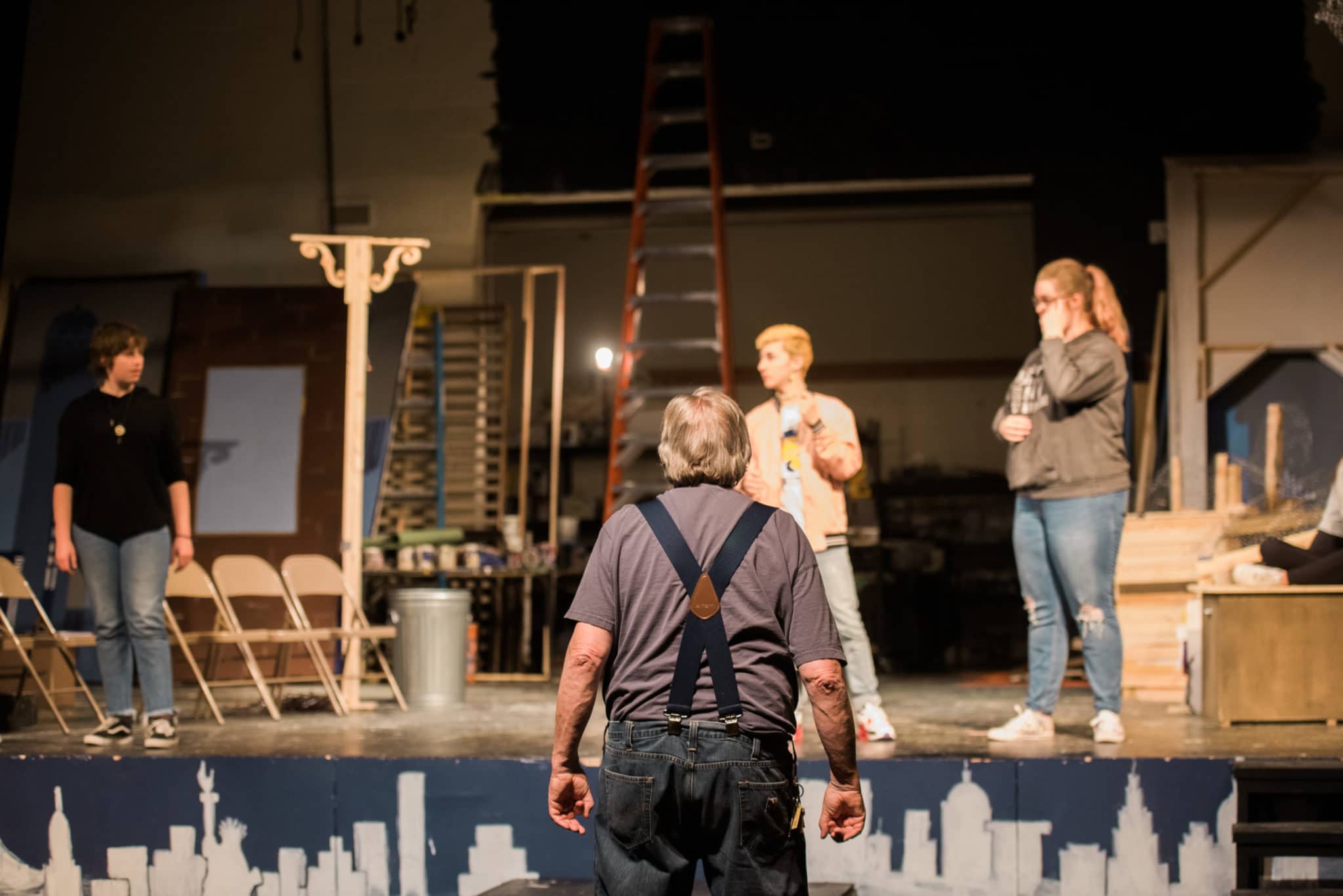
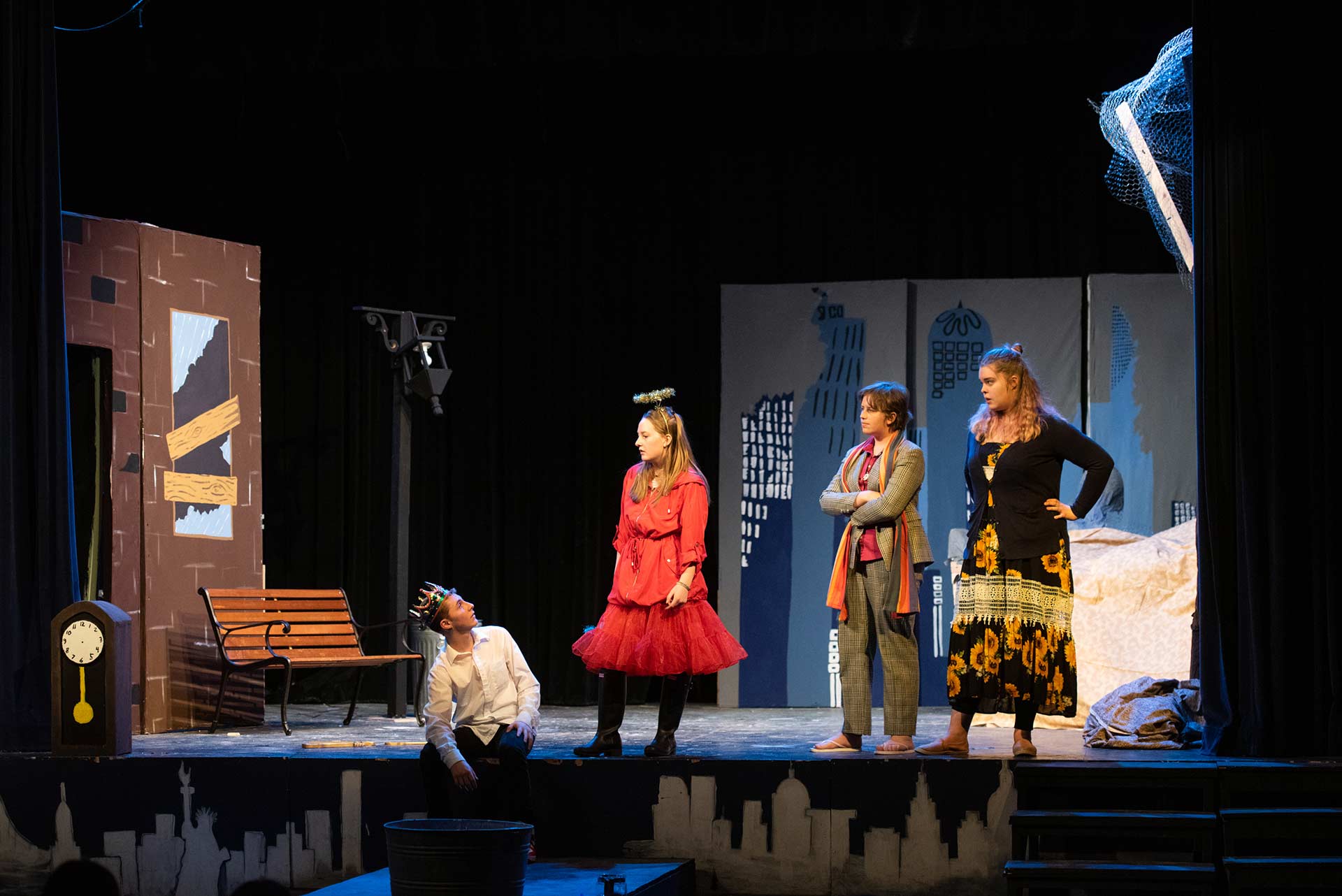
The Denver Waldorf School Remote Learning Video
A peek into our curriculum and remote learning. We never imagined that our school would have to — temporarily — close its physical doors. Classrooms, the festival hall, the playground, the gymnasium — filled with the sound of happy and enthusiastic children — are now silent. But we are not silent. We are adaptive. We are creative. We are resilient. We are The Denver Waldorf School.
Bringing Waldorf into the Home
There’s no time like the present to revisit the wisdom shared by two DWS moms, Clair Boswell and Bridget Hand, on how to bring Waldorf into home life. During our September parent council meeting, they presented many ideas for establishing an in and out breathing rhythm throughout the day and through the seasons. Establishing a rhythm in our homes gives a sense of security and provides for healthy activity for our children. With suggestions for practical activities and resources to connect as a family and with nature, their presentation is worth revisiting below.
Waldorf in the Home Handout
Audio Recording of Presentation of Waldorf in the Home

Denver Waldorf Teacher Spotlight - Mariko Murase
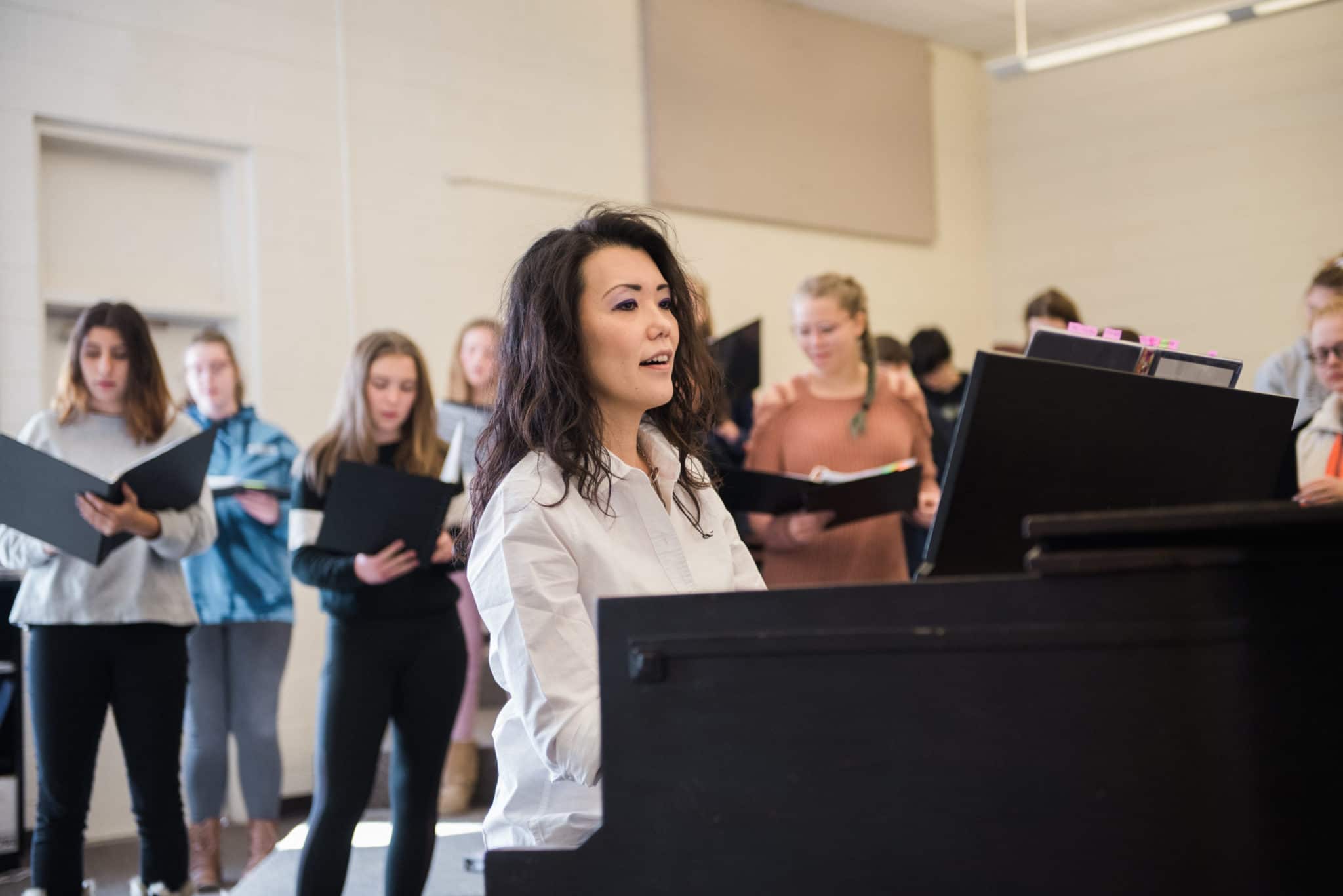
When students at The Denver Waldorf School are asked what they love about their education, they often comment that they treasure their close relationships with teachers. They are full of gratitude to be surrounded by caring, dedicated and inspiring teachers.
Our Teacher Spotlight series highlights a new teacher each month. This month, let’s get to know Mariko Murase.
What grades and subjects do you teach?
I teach Middle School and High School Choir – this is my dream job! It is a joy for me to hear beauty come alive in our collective voices.
What is your educational background?
As an undergraduate, I earned a bachelor’s degree from Nagoya University of Arts in Japan for Performance Piano with a minor in Vocal Performance. Upon moving to the United States, I earned a master’s degree in Performance Piano from the University of Denver.
What were the next stops on your journey prior to coming to The Denver Waldorf School?
Upon graduating from DU, I began working as a piano accompanist with The Denver Waldorf School as well as at Shining Mountain Waldorf School, Tara Performing Arts High School, Rocky Mountain Children’s Choir, The DU Men’s Choir, Graland Country Day School, Kent Denver School and Stanley British Primary School.
How many years have you taught at The Denver Waldorf School?
I joined the Music Department at DWS in 2006 and became the Choir Director in time for the 2019-2020 school year.
What drew you to the Waldorf curriculum?
I love how the Waldorf approach focuses not only on the mind, but also on the heart and hands. Music has a way of engaging our hearts that brings our spirits alive while also connecting us to one another in a beautiful way. I also appreciate that music is an integral part of Waldorf education from the very beginning of a child’s journey. And it’s not just in the music room that you hear music – it’s everywhere! Wander through our hallways and you’ll hear singing, wooden flutes and string instruments adding warmth and culture to our students and our community.
What is your teaching philosophy and approach?
When it comes to teaching music, it is important to me that my students are exposed to a wide variety of genres and musical styles as artistic diversity is essential for creating both an aesthetic and cultural perspective. Additionally, it is important to remember that it takes time and discipline to accomplish something meaningful in class. Put simply, if you want to be good at it, you must work at it. However, it’s just as important to enjoy the experience – we try to have a lot of fun in class together!
The Waldorf philosophy of education focuses on the whole child. What does this mean to you?
This means going beyond academic pursuits and thinking more holistically about a student’s development. That is, inspiring the students’ natural creativity and imagination is essential – not just in music or art, but in all areas of learning. To learn not only how to think critically, but to also feel and act with care, creativity, compassion and enthusiasm.
What makes The Denver Waldorf School unique?
DWS goes above and beyond to create a supportive environment for students and families at every developmental phase of a child’s learning, from nursery school through high school.
This year has been a wonderfully positive experience for me and I feel grateful that I get to spend my days in such a passionate community of students, colleagues and parents.
To see our High School Choir in action, click here to listen to the National Anthem performed at our High School basketball game!
Success in Sports
“Success is the peace of mind which is a direct result of self-satisfaction in knowing you did your best to become the best you are capable of becoming.” – John Wooden, Hall of Fame basketball coach and sports philosopher.
Coach John Wooden won ten NCAA basketball championships and yet, he famously never urged his players to win. Instead, he focused on improving skills, cultivating teamwork and instilling a championship spirit in every practice and every game. He helped his players become the best they were capable of becoming.
In a way, Waldorf athletics follows the John Wooden philosophy of sports. In a youth sports culture dominated by a win-at-all-costs mantra, Waldorf recognizes that its student-athletes have embarked upon a journey of growth and development that supersedes wins and losses. Waldorf’s coaches seek to develop the whole athlete by valuing growth in individual skills, championing teamwork and emphasizing the joy of sport.
Winning is a byproduct of doing things the right way. A loss is, not a failure, but an opportunity to learn. Waldorf’s student-athletes meet victory and defeat with equanimity and grace—traits that will serve them well in the broader world, on and off the athletic field.
An example of this broader movement is Norway- it has adopted the Children’s Rights in Sport charter which focuses on the “joy of sport for all” while forbidding excessive training and even scorekeeping before age 11. Norway’s charter simply states, “Children are engaged in sports because they enjoy it. Together with their friends they have experiences and learn lessons that will last them a lifetime. This is the foundation that all coaches, managers and parents must safeguard and develop further.”
Youth sports should not be adult-centered endeavors with an intense focus on winning at all costs. An emerging body of research suggests that, not only is the adultification of youth sports detrimental to young athletes’ happiness and well-being, but also may derail their long-term success—that is, their ability to become the best they are capable of becoming. Let them play, and enjoy the success along the way!
1st Team – Aly Sakho
2nd Team – Dylan Quinn
Honorable Mention – Wil McHenry
Coach of the Year – Michael Quinn
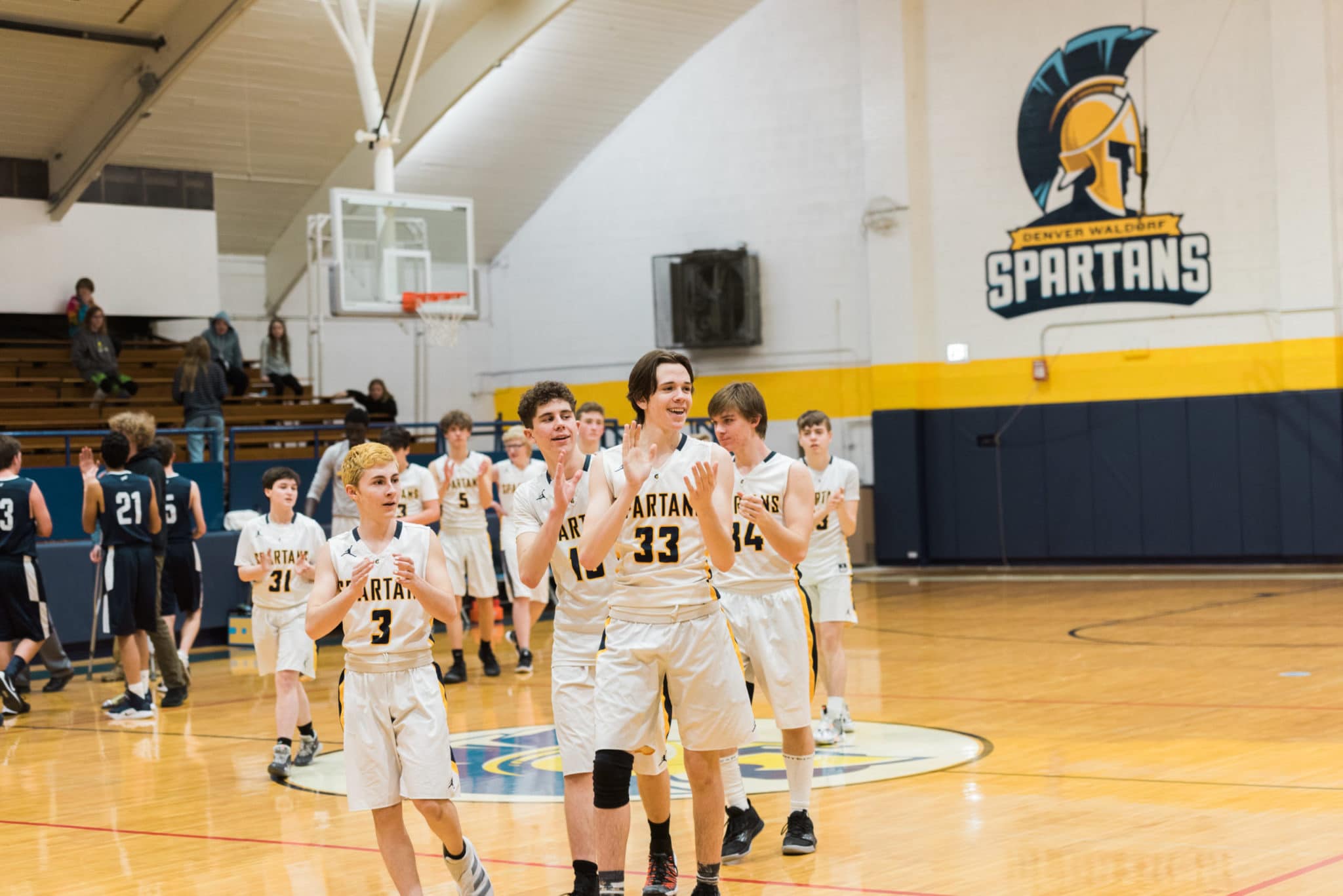
Wisdom of Waldorf - Benefit of Books
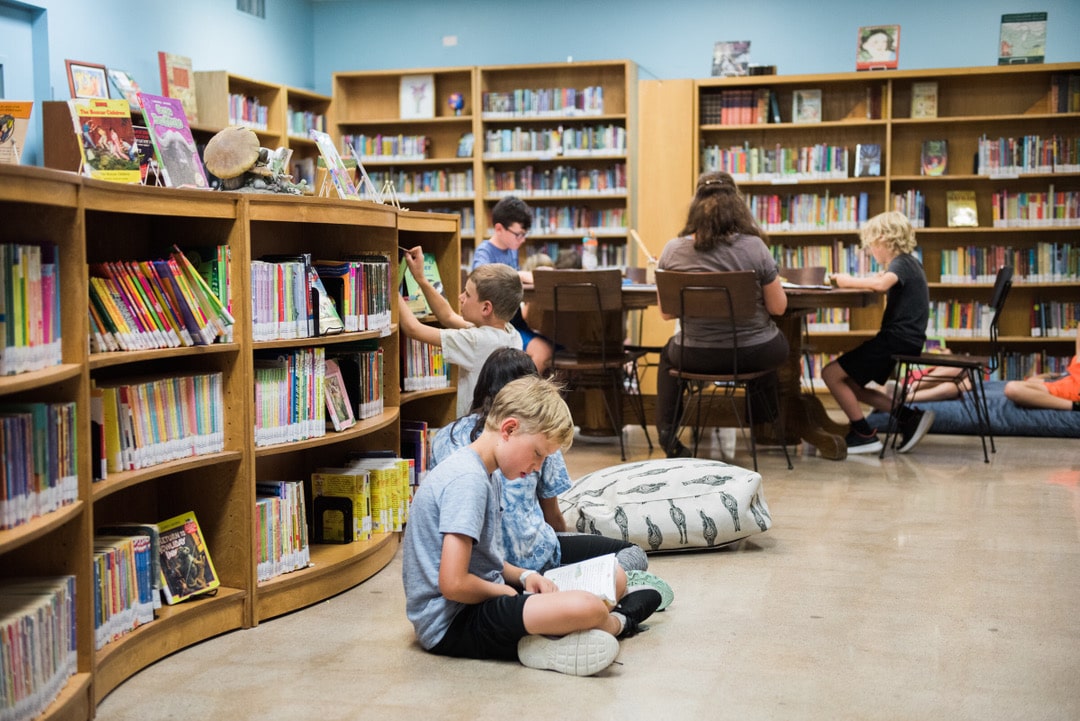
This week’s article is about a business that started in response to research demonstrating the connection between reading and being read to or told stories and brain development and the detrimental effects of screen time on the brain. From the article –
“The science we are seeing with screens and kids brains is quite frightening. The exact same organized white matter we see in brains of kids who are frequently read to turns into chaos with screens and devices. It’s almost the exact opposite effect. These language centers are crucial to support success in school, and replacing books with screens may put your child at a massive educational disadvantage. At this point, screens are a huge risk we’re taking with new generations.”
Research on brain development continues to show the value of storytelling especially in those early years. When the child hears a story, their brain is engaged in imagining the characters and landscapes. This activity of imagining supports brain development that is necessary for the ability to do math, compose essays, critical thinking and many of the things we hope our children’s education will provide. The simple act of storytelling, which is so much a part of Waldorf education, is vital to healthy development.
– Sandra Easter, PhD
Wisdom of Waldorf is shared weekly via our Facebook page, connect here to follow with more wisdom!
Wisdom of Waldorf - The Value of Play
In the last few decades there’s been a greater emphasis on academics starting in preschool. This has resulted in more and more testing and teaching geared toward those tests. The intentions of this approach were good ones. However, in Western Australia teachers recognized that this way of teaching was leading to increased anxiety and behavior problems in their students. The teacher’s union has made a bold move to eliminate testing before the age of 8 and to create a play-based curriculum. They’re basing this change on research that demonstrates that play-based learning was better for children in terms of wellbeing, academic outcomes, problem-solving and social skills.
Rather than following the latest trends in education, Waldorf schools have stayed true to the pedagogical principles that are its foundation. One of those is the value of play. Another is to introduce homework and testing gradually and with intention and purpose. Sandra Easter, PhD
Read this week’s Wisdom of Waldorf article here!
– Sandra Easter, PhD
Wisdom of Waldorf is shared weekly via our Facebook page, connect here to follow with more wisdom!
